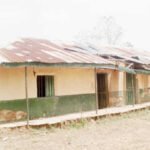The government of Senegal has secured a €121 million loan from the African Development Bank (AfDB) for implementation of an emergency agricultural programme to benefit 850,000 farmers.
It is understood that the loan is the first approved under the AfDB’s $1.5 billion African Emergency Food Production Facility, an initiative to avert a looming food crisis exacerbated by the war in Ukraine.
Senegal depends on the outside world for basic commodities and foodstuffs – a threat to the country’s food sovereignty considering the impact of the war in Ukraine.
‘This operation is intended to mitigate exogenous financial, economic, social and climate shocks and to maintain the upward trend in cereal production seen in recent years, especially by focusing efforts on the availability of key inputs including seeds and fertilisers to producers’, AfDB’s Country Manager for Senegal, Mohamed Chérif, said.
It was gathered that the Emergency Food Production Programme has three components: improving access to certified seeds and advisory support; strengthening farmers’ access to fertilizers; and enhancing governance and implementation of public policies in the agricultural sector.
Under the first component, the programme, according to the bank, will help provide 7,000 tonnes of cereal seeds, 3,000 tonnes of cowpea seeds and 15,000 tonnes of seed potatoes to farmers.
‘In addition, a partnership agreement between the Senegalese Ministry of Agriculture and Rural Equipment and the Senegalese Institute of Agricultural Research will facilitate a supply of pre-basic seeds’, a statement from the bank read.
‘This will enable at least 850 seed multipliers, 25 percent of them women, to receive pre-basic seeds. As a result, roughly 350,000 additional hectares will be cultivated to produce about 600,000 tonnes of cereals (rice, maize, and millet), 120,000 tonnes of cowpea and 150,000 tonnes of potatoes’.
The second component of the project is designed to support procurement of 118,000 additional tonnes of fertiliser in 2022 and 2023, while the third component is designed to assess and update the country’s Agro-Sylvo Pastoral Policy Law (2004–2025); the Letter of Agricultural Development Sector Policy (LPSDA 2019–2023); validation of the Agricultural Programme for Food Sovereignty and Sustainability (2021–2025); and preparation of a national index/climate insurance programme.
Photo source: FAO





